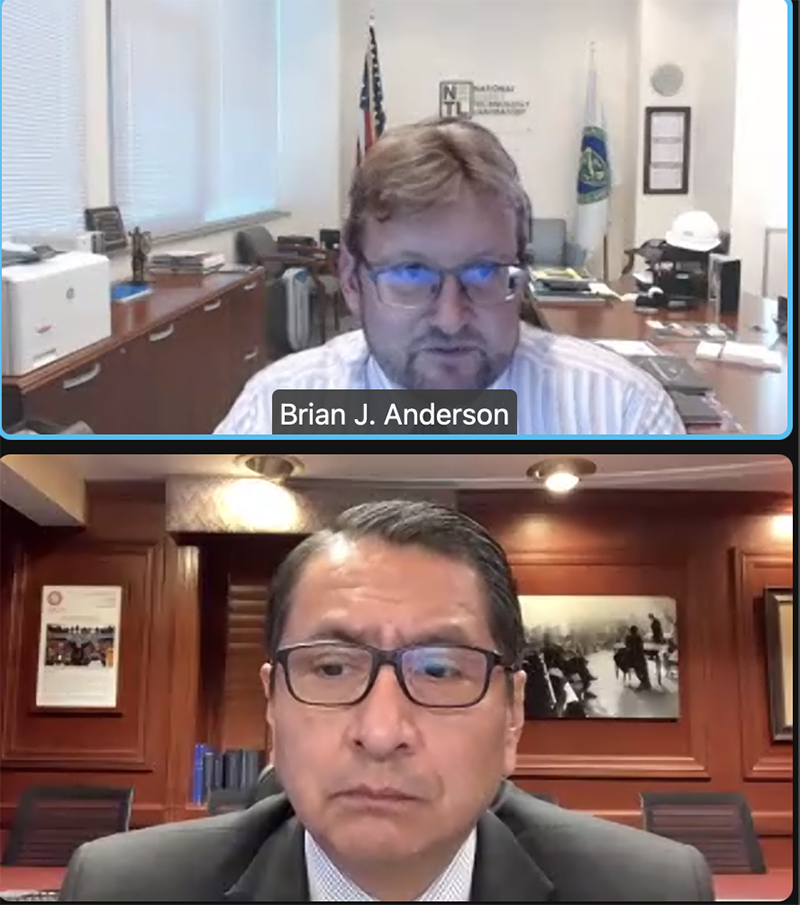Yesterday, IWG Executive Director Brian Anderson, Ph.D., and several federal agency senior officials met with leaders from Navajo Nation and Hopi Tribe to share details about federal funding available to help Tribal leaders strengthen their economies, workforce, businesses and communities.
“It was wonderful to meet with Hopi Chairman Nuvangyaoma and Navajo President Nez yesterday to discuss how the IWG can support these priority communities,” said Anderson. “The IWG is looking forward to working more closely with the Navajo Nation and Hopi Tribe, and other tribes across the country, to support their hard-working energy workers and communities as the country undergoes the largest energy transition in a century.”
The virtual event was specifically tailored to support the economies of Navajo Nation and Hopi Tribe energy communities and open a meaningful dialogue on potential development projects. It had a strong focus on how to apply for federal funding, like the U.S. Economic Development Administration’s (EDA) Coal Communities Commitment, and an extensive Q&A segment with federal agency representatives.
“Our goal is to empower our nation’s underserved energy communities to bolster their economies and continue to grow their workforce. It is a top priority to ensure people in these communities gain access to resources to flourish,” said Anderson.
Established by an Executive Order in President Biden’s first week in office, the IWG is pursuing a whole-of-government approach to create good-paying union jobs, spur economic revitalization, remediate environmental degradation and support energy workers in coal, oil and gas, and power plant communities across the country as the U.S. prepares to undergo a historic energy evolution to a carbon emission-free electricity sector by 2035 and economy-wide net-zero emissions by 2050.
The webinar recording, presentation slides, and final agenda can be found here.

 )
or https:// means you’ve safely connected to
the .gov website. Share sensitive information only on official,
secure websites.
)
or https:// means you’ve safely connected to
the .gov website. Share sensitive information only on official,
secure websites.

